Canada’s Harbour Air plan to recommence test flights with its all-electric seaplane, to move it closer to carrying paying passengers.
In December of 2019, Harbour Air performed the first flight of what they termed “ World’s first commercial electric airplane”. Of course strictly-speaking, the aircraft would not have permission to operate commercially in its then-current configuration. But this is nit-picking. The company’s goal was and is to perform commercial flights, with that aircraft, with that power setup.
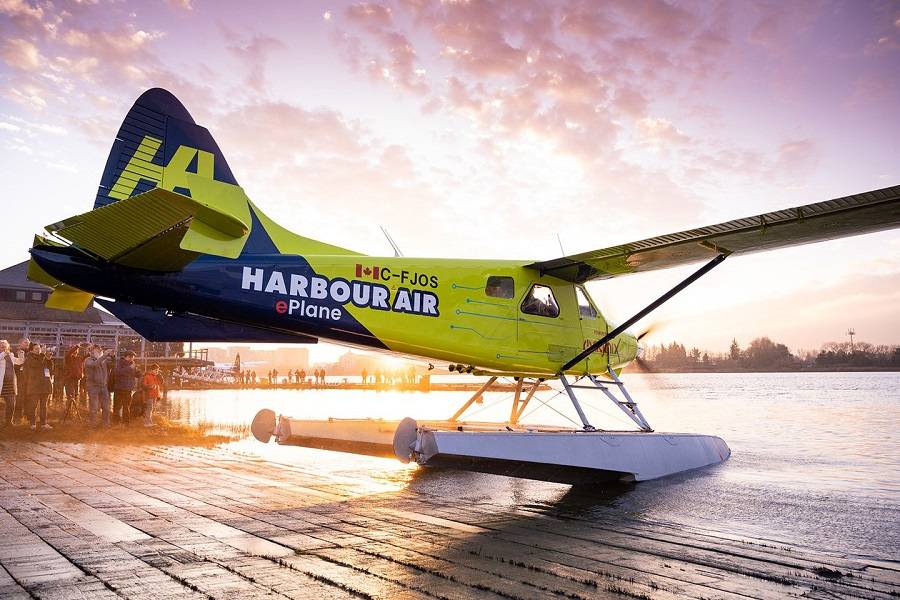
We have already discussed the electric motor they used, and magniX, the company behind it. Harbour Air were quite happy with the way this setup performed. The flight was meant to prove the electric motor, its monitoring systems, and the energy management setup. And in that, it was successful.
Now the company wants to move on to the next phase of the test, which will involve the batteries. Harbour Air’s first electric flight lasted a few minutes. It used lithium-ion batteries, that had enough capacity for a 15-minute flight, with a 25-minute reserve. With enough batteries for this, the aircraft was very close to its design maximum gross weight.
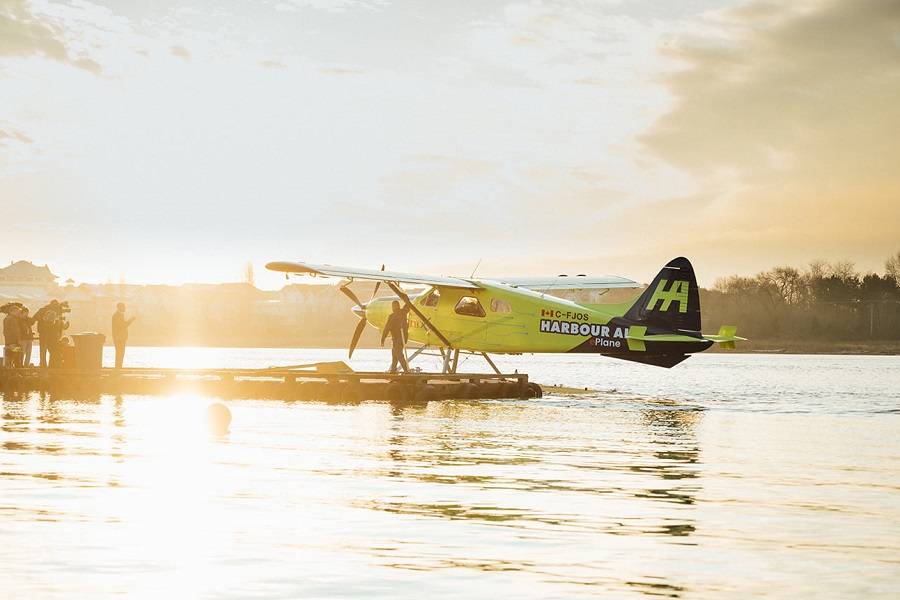
But these first batteries were far from ‘the latest and greatest’. They were a NASA-approved design, for use on the space station. Again, Harbour Air’s first electric flight was not about the batteries, so this was perfectly acceptable. Then last May, magniX flew the same electric motor and control systems, in a Cessna Caravan, with different lithium-ion batteries. This aircraft flew for 30 minutes, plus reserve.
Harbour Air’s Next Electric Step
Harbour Air were not part of magniX’s electric ‘eCaravan’ test. But they, too, have Cessna Caravans – on floats, of course. And they want to electrify their whole fleet, so their Caravan Amphibians are very much part of the plans. But as far as their own tests go, they now want to switch focus to those batteries…
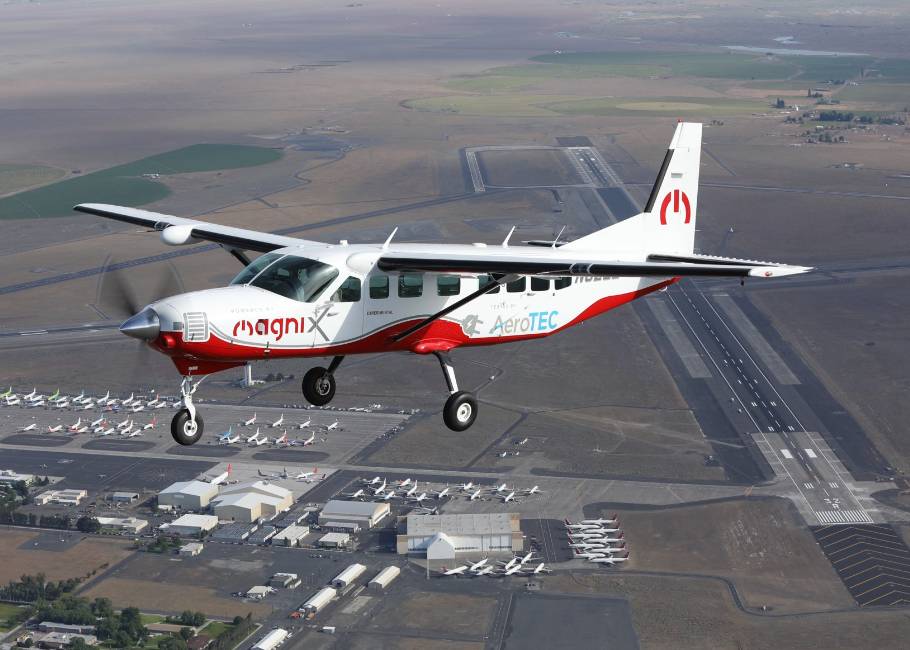
Harbour Air CEO Greg McDougall explains the relative lack of activity since their first electric flight:
“There’s no wavering in our confidence and determination and interest in getting this done. It’s progressing, not as quickly as we hoped due to COVID, but we are getting back on track with the testing program.“
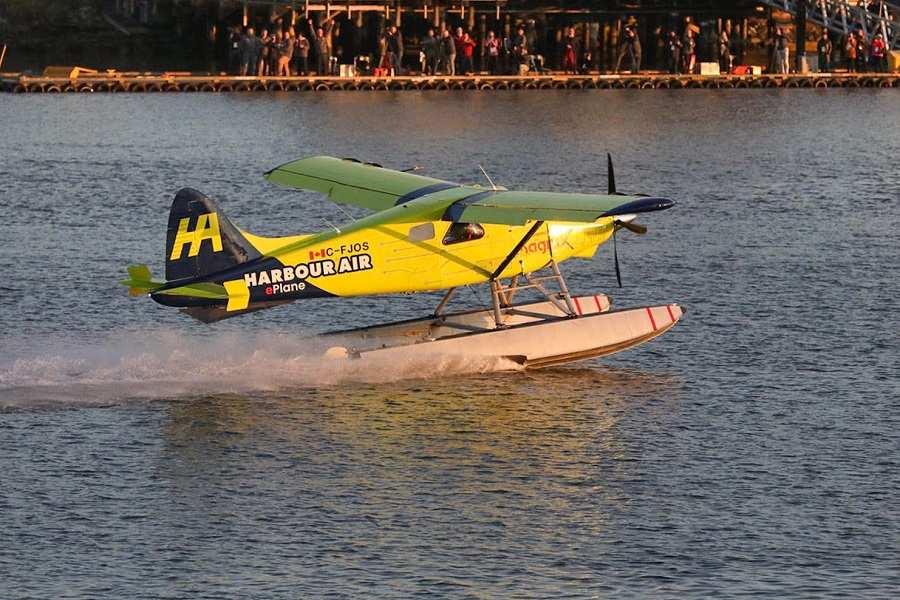
McDougall himself flew Harbour Air’s first electric flight. The ‘e-Beaver’ already has Transport Canada’s permit to continue test flights in 2021. This time, the aircraft will carry newer, lighter and higher-capacity batteries. McDougall reckons that they’ve lost a year thanks to the pandemic, but they don’t plan to fall further back.
McDougall and his airline are optimistic. They generally fly short routes, with relatively small numbers of people on board. Harbour Air’s ‘mission’ for flights, electric or not, is similar with other initiatives that we have seen. Heart Aerospace’s ES-19 will be a purpose-built electric airliner, but using similar technologies. Seeing the start of the idea, with existing aircraft, is a vital step in this progression.
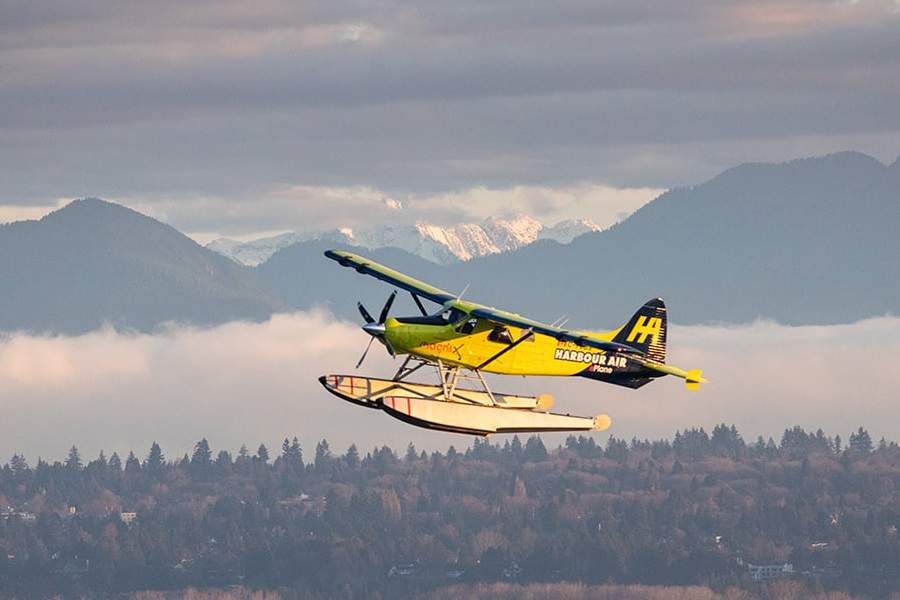
When they come, Harbour Air’s first electric commercial flights will not be long, but they don’t need to be. Batteries get better and better. And since the weight of these batteries is the limiting factor, even small improvements, go a long way.
All Pictures by Harbour Air, magniX



